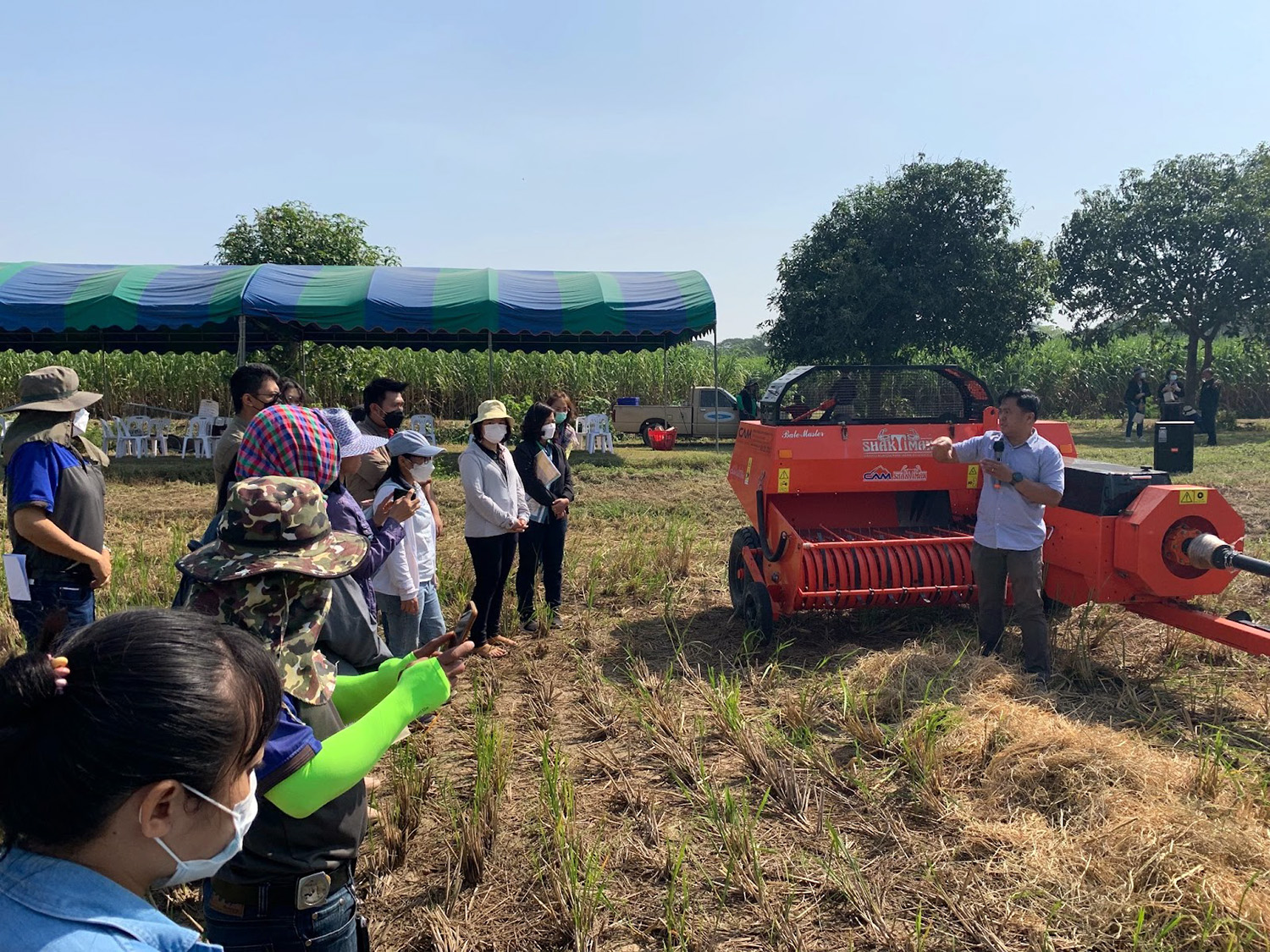The IRRI mechanization and postharvest experts held a sustainable rice straw management training last December 13-15, 2022 in Thailand. The training was done under the Thai Rice Nationally Appropriate Mitigation Action (NAMA) Project funded by the NAMA Facility and implemented by the Thai Rice Department and GIZ. The National Agricultural Machinery Center (NAMC), Kasetsart University welcomed all the participants coming from the country’s different rice industry sectors.
The widespread open-field burning of rice straw is a major contributor to dangerously high levels of air pollution in South and Southeast Asia and is associated with health issues. Several alternatives were being offered to farmers and other stakeholders. However, basic information on the sustainable management of rice straw still remains to be disseminated.
The training workshop was attended by the director of Thai Rice NAMA, Mr. Ole Henriksen. According to him, sustainable rice straw management is necessary for achieving the main objective of the project which was to shift to low-emission rice production.
“Finding an alternative to rice straw burning reduces emissions and significantly reduces air pollution which is a high priority for Thailand and this adds income to the farmer by selling the rice straw. I believe this is a great opportunity for all of us to work together and contribute to reducing GHG emissions in Thailand towards carbon neutrality,” he said.
Dr. Bjoern Ole Sander, IRRI’s representative to Thailand, emphasized the challenge of climate change which is a pressing issue in agriculture at the moment with rice being one of the main contributing factors.
“The reduction of GHG can be done in a win-win situation by reducing GHGs, maintaining high production, and increasing income for farmers. The reduction of GHG emissions should be seen not as a burden to farmers but as an opportunity and a new way for agricultural production,” he said.
Professor Anuchai Pinyopummin, Vice President of Kasetsart University, expressed optimism about the knowledge that was imparted to the training participants as a guideline to reuse rice straws and a way to improve farmer incomes instead of burning them.

Engineers Carlito Balingbing and Joseph Sandro discussed the different technologies and best practices for sustainable management of rice straws. They shared knowledge on the basics of rice straw collection and the basic operation of rice straw balers through hands-on exercises. The principle of business models and drafting a business model canvas on specific rice straw management technology options, as well as techniques, and principles for producing good quality rice straw for cattle feed were also discussed.
Mr. Kritkamal Paothong, Director of the Ayutthaya Rice Research Center, presented the status and options for sustainable rice straw management in Thailand and demonstrated sample products made from rice straw.
The participants were very thankful and appreciative of the result. Ratcharnon Limpanachokchai, International Business Development Director of Chokchai Agricultural Machinery Co., Ltd (CAM) expressed his appreciation for what he learned from the training.
“This is a good opportunity to see and learn about the products and the details on how to use these in each process of rice straw management,” he said.
The participant from Siam Cement Group (SCG) remarked that the training is a good venue to also widen their networks and connections with other rice industry players. He also shared the plans of his company in investing in biomass energy production and looking at rice straw as the perfect raw material.
For more information, you may contact the Mechanization and Postharvest Team (postharvest@irri.org).


